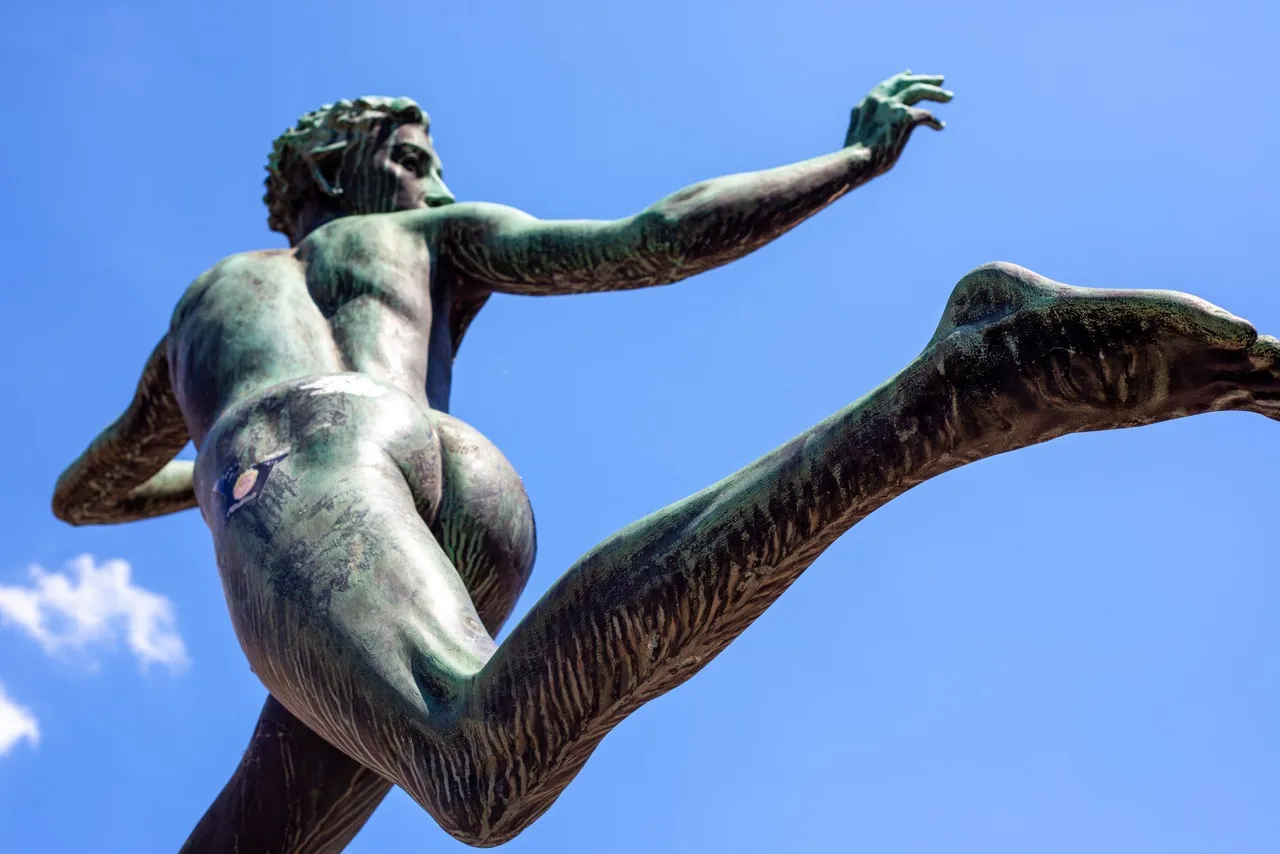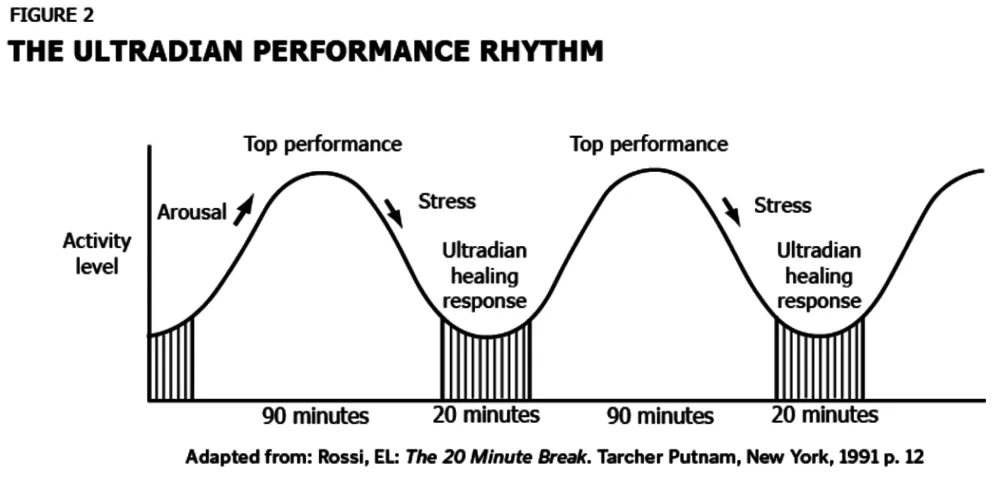
When the going gets tough and we’re faced with a setback, a voice in our head (or maybe a parent, coach, or mentor) loudly reminds us, “Life is a marathon, not a sprint!” The message is that we shouldn’t be in a rush, patience is a virtue, greatness is achieved through perseverance, Rome wasn’t built in a day...And a hundred other similar tropes.
Great things do take time. But the idea that we should commit to one endeavor doesn’t come with an instruction manual, and it can be misunderstood for “work 12-hour days to chip away at your goals.” I don’t believe this is effective or healthy.
You’re probably familiar with the circadian rhythm, our internal 24-hour biological clock. There’s also an “ultradian rhythm,” which operates on shorter 90-minute time scales. It was originally discovered by sleep researchers who observed that our sleep cycles average 90 minutes. In fact, our energy and focus often follow a similar 90-minute pattern.
A well-known study on the world’s top violinists found that they practice three times a day, in short/intense bursts, and for no longer than 90 minutes. And they rarely practice for more than 4.5 hours a day.
The more you look around, the more you’ll find examples like this — from the routines of elite athletes to famous authors like Stephen King who write in sprints for only half the day. Now that I think of it, it usually takes me about 90 minutes to write my newsletter (followed by a break/lunch and then proofreading it and another sprint).
Life is not linear — there are ebbs and flows. Periods of work followed by periods of rest. We understand this intuitively on a yearly, quarterly and weekly basis, as many of us take holidays for at least a couple of weeks and many of us chill out on the weekends.
But many of us ignore these natural cycles on a daily basis when we’re at work. We push through with caffeine, constant checking of emails, and focus on work. We insist on doing something, even though sometimes it's okay to do nothing. The consequences of this are clear — increased stress, decreased productivity, and burnout.
In his book The 20 Minute Break, psychologist Peter Rossi suggests we do the opposite if we want to stay energized. We should sprint for 90 minutes (on a specific task) and as our focus wears off, we take a strategic break for about 20 minutes at the trough. That 20 minute break should be spent doing something completely different.
In this way we can have explosive energy, rest up, and then repeat. In other words, our performance and energy on both larger and smaller time scales are better managed in a Sprint Mentality rather than a marathon mentality. It means being fully engaged, followed by being fully disengaged.
By the way, if you decide to try out a more sprint-and-rest routine, at first it'll feel like you’re being lazy. That’s normal. That feeling of, “Am I doing enough?” or “It’s not right that I’m getting paid to do nothing…” will be strong. I went through this, and I can say that the feeling will pass after a few weeks once you realize you’re more productive, relaxed and happier than before.
Lastly, if you’re interested in reading about managing your energy levels, I’d recommend The Power of Full Engagement.
Posted from my blog with SteemPress : https://mishayurchenko.me/2020/08/08/the-sprint-vs-marathon-mentality/